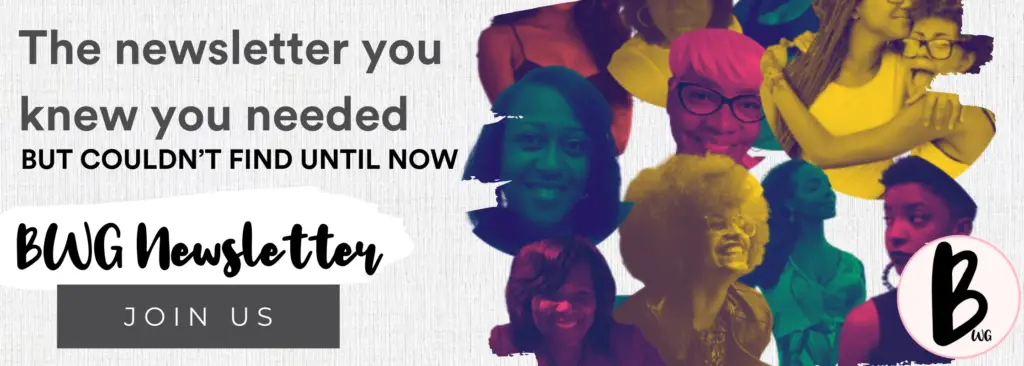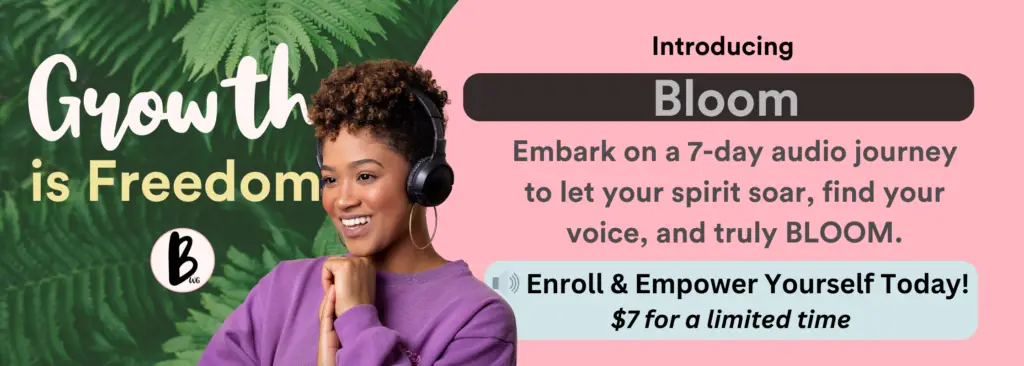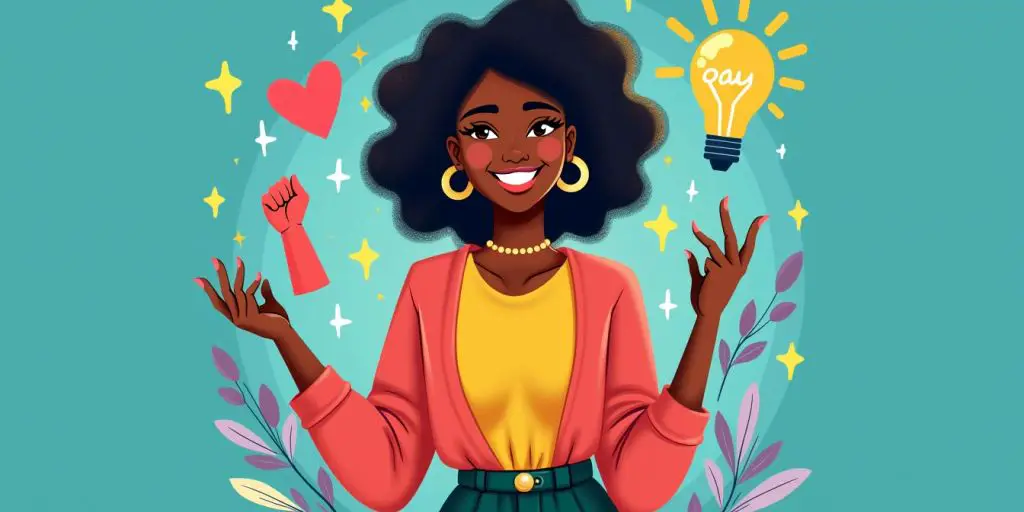Empowerment is a journey, and for Black women, it can be both challenging and rewarding. Facing unique obstacles, from societal stereotypes to systemic injustices, Black women often have to find strength in themselves and their communities. This article discusses five powerful strategies that can help Black women empower themselves and thrive.
Table of Contents
Key Takeaways
- Therapy For Black Girls: Therapy is a valuable tool for mental health and self-care. It provides a safe space to explore thoughts and feelings, helping to overcome trauma and stress.
- Black Woman Great: This blog offers resources and inspiration on various topics like money, travel, food, and self-care, aimed at supporting and empowering Black women.
- Power And Control Wheel: Understanding the dynamics of power and control, especially in the context of domestic violence, can help Black women recognize and combat abuse.
- CARE: This organization works to provide clean water and better sanitation, involving women in decision-making processes and promoting health and economic opportunities.
- United Nations Population Fund: This resource offers empowerment activities and support, helping Black women and their communities to grow and thrive.
1. Therapy For Black Girls

Therapy is a powerful tool for healing and growth. For Black women, it can be especially challenging to seek help due to negative stereotypes and stigma surrounding mental health in the Black community. However, seeking therapy is a sign of strength, not weakness. By combating these harmful narratives and seeking help, you are taking care of yourself and prioritizing your well-being.
Therapy provides a safe space to explore your thoughts, emotions, and experiences. A therapist can help you work through past traumas, deal with current stressors, and develop coping strategies for the future. It’s important to find a therapist who understands and appreciates your unique experiences as a Black woman. A great resource for finding culturally competent therapists is therapyforblackgirls.com. They offer a Black therapist finder, tips on going to therapy, and mental health advice & resources.
Remember, everyone’s journey is unique, and there is no right or wrong way to express yourself. Embrace your individuality and heal on your own terms.
2. Black Woman Great

Black women have a long tradition of creating their own spaces where they can show up as a whole person, and not just as a woman, or just as a Black person. Starting in the late 1800s, Black women formed activist clubs, mutual benefit societies, settlement houses, and schools to address lynching, health, sanitation, education, and woman suffrage. Early Black women’s clubs included the National Association of Colored Women, the Neighborhood Union, the National League for the Protection of Colored Women, and the National Council of Negro Women. In response to the exclusion of Black women’s interests in the feminist movement, Black women continued to create their own spaces throughout the 20th century. Notable spaces include the Women’s Political Council, the Combahee River Collective, The National Black Feminist Organization, the National Congress of Black Women, and African American Women for Reproductive Freedom.
In 1982, Alice Walker coined the term womanist to name Black women’s organizing and activism. Marcia Walker-McWilliams, the Executive Director of the Black Metropolis Research Consortium describes womanism as a movement that centers the experiences, contributions, and efforts of Black feminists to better the world around them for all of humanity, not just themselves. Womanists speak to the injustices faced by Black women, men, children, and families and frequently fight against these injustices by leading, participating in, or supporting various social justice movements.
Black women, even if nobody else sees you, I SEE YOU. We are worth protecting and we are worth loving.
Black women have had to create spaces for themselves when no one else was interested in prioritizing their unique existence in American society. We also want to acknowledge the ongoing plight of Black women experiencing gender-based violence, navigating how to overcome invisibility, as well as the intersectionality of sexism, racism, and the other forms of oppression that they experience.
3. Power And Control Wheel
The Power and Control Wheel is a vital tool for understanding the unique challenges Black women face in abusive relationships. Developed by Black women in New Orleans, this framework goes beyond traditional views of power dynamics in intimate partner violence. It considers the intersection of race, culture, and systemic issues, providing a comprehensive look at the complexities involved.
Creating this wheel was a response to the disproportionately high rates of Black women being arrested for domestic violence. Listening sessions with survivors, advocates, and police officers revealed that social inhibitors were contributing to these arrests. The wheel helps mainstream service providers and legal systems improve their cultural competency and responses to Black women.
Recognizing the importance of this tool is key to fostering a more inclusive and effective response to domestic violence. It promotes healing, empowerment, and breaks the cycle of abuse. By acknowledging the specific challenges faced by Black women, the Power and Control Wheel becomes an essential guide for advocacy and support.
The Power and Control Wheel is not just a tool; it’s a lifeline for many Black women, helping them navigate the complexities of abusive relationships and find their valiant voices in the process.

4. CARE
CARE is an international organization that focuses on fighting global poverty and social injustice. Their work is especially important for Black women, as they provide resources and support to help them overcome various challenges.
Key Initiatives
CARE has several key initiatives that are designed to empower Black women:
- Economic Empowerment: CARE offers programs that help women gain financial independence through job training, microloans, and business development.
- Health and Wellness: They provide access to healthcare services, including maternal health, mental health support, and nutrition programs.
- Education: CARE supports educational opportunities for women and girls, ensuring they have the skills and knowledge needed to succeed.
Community Support
One of the most impactful aspects of CARE’s work is their focus on community support. They create safe spaces where women can share their experiences, learn from each other, and build strong support networks. This is crucial for Black women who often face higher rates of depression and anxiety compared to their peers.
By prioritizing community support and providing essential resources, CARE helps Black women build resilience and confidence, enabling them to navigate societal challenges more effectively.
Advocacy and Policy Change
CARE also works on a larger scale to advocate for policy changes that benefit women. They collaborate with governments and other organizations to push for laws and policies that promote gender equality and protect women’s rights.
In summary, CARE’s comprehensive approach to empowerment—through economic opportunities, health and wellness, education, community support, and advocacy—makes a significant difference in the lives of Black women around the world.
5. United Nations Population Fund
The United Nations Population Fund (UNFPA) plays a crucial role in empowering black women globally. This organization focuses on improving reproductive health, ensuring safe childbirth, and promoting gender equality. UNFPA’s initiatives are designed to support women in making informed choices about their bodies and futures.
Key Initiatives
- Reproductive Health Services: UNFPA provides essential reproductive health services, including family planning, prenatal care, and safe childbirth practices. These services are vital for black women, who often face disparities in healthcare access.
- Gender Equality Programs: The organization runs various programs aimed at promoting gender equality and reducing gender-based violence. These initiatives help create a safer and more equitable environment for black women.
- Educational Opportunities: UNFPA supports educational programs that empower young women with the knowledge and skills they need to succeed. Education is a powerful tool for breaking the cycle of poverty and discrimination.
By supporting UNFPA, you contribute to a world where every woman can make informed choices about her health and future. This is especially important for black women, who often face unique challenges in accessing quality healthcare and education.
How You Can Help
- Advocate: Raise awareness about the importance of reproductive health and gender equality. Share information about UNFPA’s work with your community.
- Donate: Financial contributions help UNFPA continue its vital work. Even small donations can make a big difference.
- Volunteer: Offer your time and skills to support UNFPA’s initiatives. Whether it’s through local events or online campaigns, your involvement matters.
Supporting organizations like UNFPA is a step towards a more equitable world. When black women have access to the resources they need, they can thrive and contribute to their communities in meaningful ways.
The United Nations Population Fund (UNFPA) plays a crucial role in promoting global health and well-being. They focus on reproductive health, gender equality, and population data to support sustainable development. To learn more about their impactful work and how you can contribute, visit our website.
Conclusion
In conclusion, empowering oneself as a Black woman involves embracing a variety of strategies that cater to personal growth and well-being. Whether it’s through building a supportive community, seeking therapy, or celebrating personal achievements, each step taken is a move towards a more empowered and fulfilled life. Remember, it’s okay to ask for help and to prioritize your own needs. By doing so, you not only uplift yourself but also set a powerful example for others. Keep pushing forward, stay true to yourself, and continue to shine brightly.
Frequently Asked Questions
What is Therapy For Black Girls?
Therapy For Black Girls is a platform that connects Black women with therapists who understand their unique experiences. It offers resources and support to help Black women prioritize their mental health.
What topics does Black Woman Great cover?
Black Woman Great is a blog that focuses on empowering Black women by discussing topics like money, travel, food, business, and self-care.
How does the Power And Control Wheel help Black women?
The Power And Control Wheel helps Black women by providing a framework to understand the dynamics of abuse and power in relationships, considering the cultural and historical factors that affect them.
What does CARE do to empower women?
CARE helps empower women by providing access to clean water and involving them in decision-making processes. They also work on improving sanitation facilities to enhance women’s health.
What is the United Nations Population Fund?
The United Nations Population Fund is an organization that works on various issues, including women’s empowerment. They provide resources and activities to help women grow and support each other.
Why is it important for Black women to acknowledge their accomplishments?
Acknowledging accomplishments helps Black women build self-confidence and reduce stress. Celebrating wins, big or small, can empower them to stay motivated and focused on their personal growth.

